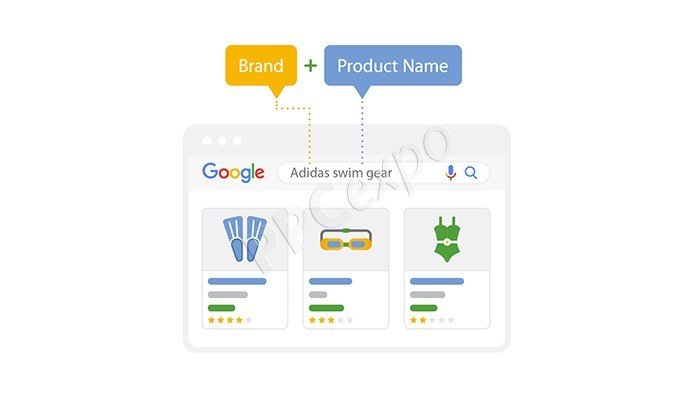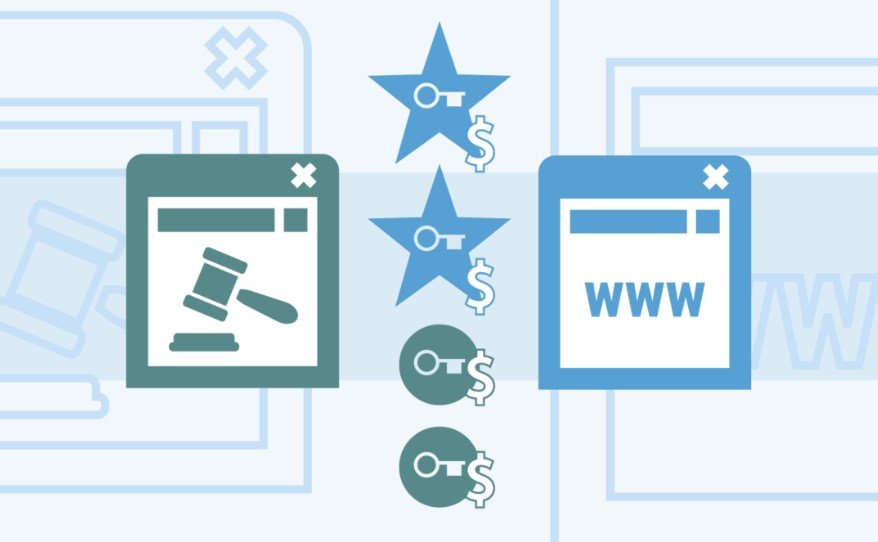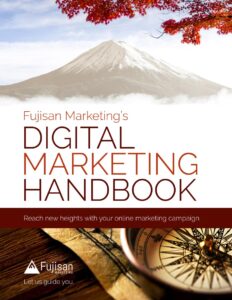As a marketer, you’re probably already putting work into search advertising to get your brand in front of eyeballs. What you might not be doing, however, is bidding to put your brand in front of eyes that are already looking for you. It does initially sound kind of silly — if someone already wants to find you for free, why put money towards that? Well, here’s why:
Brand keywords and why bidding on them benefits you
As the name suggests, brand keywords are just words and names associated with your brand name. The idea of spending money on your own name, products, and other keywords can sound like a redundant waste, but there are actually crucial benefits to doing so.
If you are advertising for a branded search term it will increase CTR and clicks on their organic listing especially if it is in position one
For starters, bidding on your name and related keywords gives you insurance in a sense against your competitors. That is: If you’re not bidding on your brand keywords, a savvy competitor probably is. If you’re Adidas, you don’t want someone Googling “Superstars shoes” to see a Nike search ad right on top — same with your business. This gives you more legitimacy, works against competitors’ efforts to use your terms against you, and increases your presence.
Speaking of that last part, a bunch of this comes down to that: Increasing your presence. Simply put, bidding on your brand keywords increases the space of someone’s computer screen that’s dedicated to you.
Also, branded keywords have a higher CTR, compared to non-branded keywords. With that in mind, if you are advertising on branded keywords or search terms, your CTR will increase, as well as the number of clicks on your organic listing, especially if it is in position one. This isn’t as surprising, considering searchers are searching for specific branded terms. And, as your CTR increases, then more than likely, your position will rank higher.
As we’ve spoken about in the past, people have notoriously poor attention spans — even more so in the digital age than ever before — and so don’t tend to scroll far to look for what they want. With this method, your site will presumably be the first organic result, have a paid ad in the top spot right above, and with a sitelink extension will have further text below that; that ensures you will take up as much critical space as possible above-the-fold.
Further, this method helps capture people who have heard of your brand while you can optionally exclude existing customers and/or previous visitors. With custom audiences, you can exclude these past customers to focus your effort and budget on these aware, potential new customers. Combined with the aforementioned benefits of brand keyword bidding, this helps emphasize a specific, valuable group of users.
Last but definitely not least: Bidding on your own keywords typically comes with a much lower cost per click than when you bid on non-brand-specific keywords. Sure, you still have to pay some, but you’ll typically pay artificially low prices relative to their effectiveness — this is often 50% or more of a “discount” than you’ll pay for non-brand keywords. This is because, while we mentioned above that a savvy competitor or a few might be bidding on your keywords, still far fewer are prioritizing them or bidding at all versus more generic keywords. In the words of Tim & Eric (and the whole internet): It’s free real estate.
How should you approach brand keywords?
We have a handful of guidelines we like to give clients. Here we have the point-by-point:
- Keep your brand keywords and non-brand keywords in different ad groups or campaigns. This is because, in any given account, the budget for PPC is set at the campaign level. If you don’t separate these campaigns, you can inadvertently end up with runaway spend of either non-brand or brand keywords. In the former case, you’d limit brand keyword exposure while in the latter case, you’d just throttle your non-brand keywords.
- Dedicate a set budget. This goes for pretty much everything, but you should have a cap and control how much you allocate to brand campaigns. This will help ensure you’re functioning efficiently and neither wasting a bunch of money nor accidentally underspending. By keeping your budget clear, you can also more easily interpret how spend impacts your metrics and better adapt your overall marketing strategy.
- Include variations in brand keywords, plus their match types. That is, don’t just bid on, say, your name or product and leave it at that. After all, people don’t tend to always search for the “proper” term of what they need — there are often typos, colloquialisms, and general variants. For example, if you’re the brand Oakley, you’d want to bid on not just “Oakley,” but “Oakley sunglasses,” “oakleysunglasses,” “oak ley sunglasses,” “Oakley sun glasses,” “oak lee glasses,” and so on.
- Actively exclude your brand keywords from all other active campaigns. For accurate reporting, you’ll want to make sure your non-brand campaigns aren’t also counting brand keywords. Do this by making sure all your brand keywords you’re bidding on for their own campaign, are added as negative keywords for the non-brand campaigns. Using Oakley as an example again, you wouldn’t want a search for “polarized lens sunglasses” to serve an ad from your branded keyword “Oakley sunglasses” if you’ve also already bid on the non-branded keyword “polarized lens sunglasses.”
What to expect as you continue running brand PPC campaigns
The first thing you’ll find from these campaigns is more conversions — typically at a lower cost per acquisition.
You’ll also be able to more proactively learn about your competitors’ approaches by inferring about who’s bidding on your brand keywords. From there, you can form defensive strategies to guard against that and protect your “ownership” of your brand. If you’re especially savvy, you can potentially even deduce how to gain further ground against competing businesses, too.
Plus, when all is said and done, you’ll end up being able to forecast budgets quite precisely based on the performances of your specific campaigns, branded and non-branded.
All in all, bidding on your own brand keywords is an efficient way to both get a leg up in your industry and proactively prevent your competitors from boxing you out by doing the same. Between this and the insights you’ll gain from branded campaigns, you’ll find numerous, diverse benefits across all of your marketing efforts.






